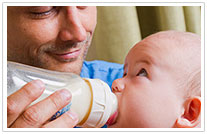
New studies are raising investor concerns about the long-term health of those who consume GMOs and companies that sell GMO products.
Genetically modified organisms (GMOs) have been hotly debated in grocery stores, state legislatures, and national courts—and, most recently, in corporate shareholder meetings.
This year, As You Sow filed shareholder resolutions asking Abbott Laboratories and DuPont to reconsider the risk of using GMOs in their products given new scientific research and consumer attitudes.
For decades, studies on the health effects of GMOs were limited to 90 days. In 2012, the first long-term study was published in a peer-reviewed journal; it found that 70% of rats fed GMO corn over their entire lives died prematurely from organ failure or tumors, compared to a control group eating non-GMO corn.
Abbott Laboratories, one of the world’s top pharmaceutical and nutritional product companies, is currently using GMO soy and corn in its popular infant formula, Similac. The company makes a GMO-free version in the European Union, where GMO labeling is required. Over 60 other countries including China, Japan, India, Australia, and Russia have similar labeling requirements.
“The decision to continue selling GMO products is based on outdated assumptions,” stated Andrew Behar, CEO of As You Sow, at the Abbott shareholder meeting in April. “The latest science is clear and current polls are overwhelming. Abbott should protect their most vulnerable customers, newborn infants, and their brand reputation by selling GMO-free formula in the U.S.”
A recent poll found that 91% of Americans want GMOs to be labeled. Whole Foods recently recognized this by committing to require labeling of GMOs on all products by 2018 following 15 years of dialogue with As You Sow and other investors. Also, GMO labeling is looking promising in Connecticut, Vermont, and Washington, which has led major food companies and retailers, including Walmart, to actively discuss national labeling.
It looks like the U.S. is poised to join the rest of the world in letting people know what is in their food so that we can make informed decisions about our health and the health of our families.











